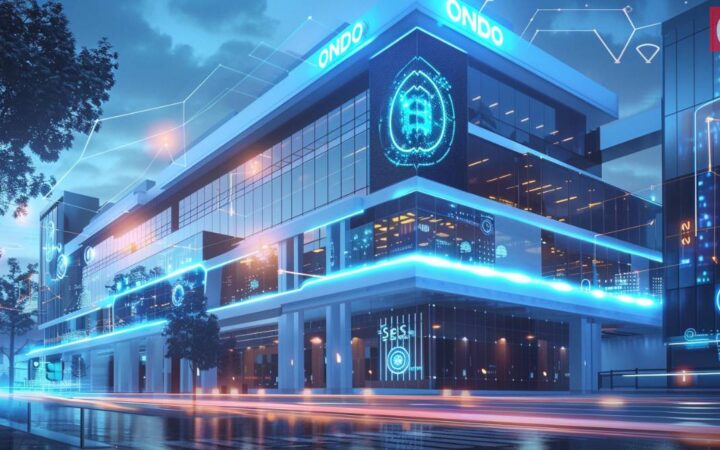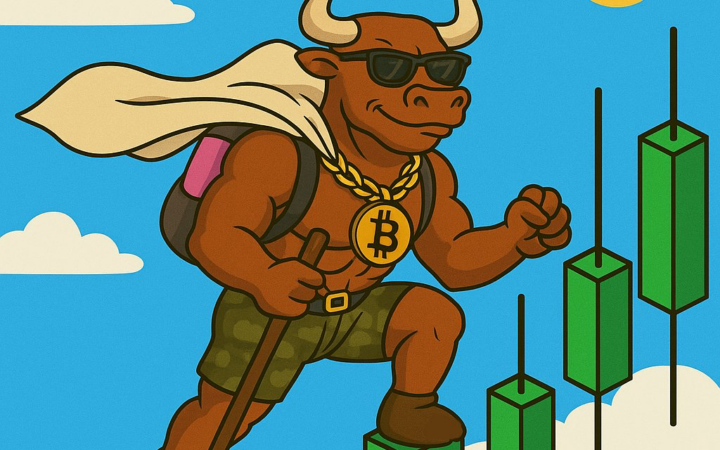
How to Select Excellent Mods for Web3?

Nowadays, as a must-have for crypto projects and communities, Discord has become more and more influential in the crypto market.
And mods are the most important connectors between communities and project development teams on Discord, directly affecting the implementation of project governance.
Choosing the proper mods is a matter of technique as well as luck for project organizers, meanwhile the past work experience and achievements of mods are difficult to get proved. That is, the both sides are currently connected only by trust, which is apparently not enough.
Then such an idea comes to our mind: If the crypto market had a LinkedIn-type system of decentralized IDs (DIDs) with community trust endorsement that could prove the mods’ past experience, this dilemma mentioned above would be solved eventually.
Mods Are Related to Communities’ Survival
Mods may be kind of unfamiliar for people who are not so interested in Discord. Mod stands for moderator, acting as a host or arbiter, and is more commonly referred to as “版主(the same meaning as moderator in English)” by Chinese communities, who is responsible for management and routine maintenance of community channels.
In general, as creator and manager of the server, the project organizer will select certain community members as mods to manage the sub-channels. To make a simple analogy, the project organizer is the chairman of the community while the mods are the general managers of each branch – with high power obviously.
However, with NFT sector developing greatly in the past year, the power of mods has been expanded further and is even on the verge of being out of control.
At the very beginning, in order to get whitelist qualifications, some users usually take advantage of the early stage of projects when the rules are not perfect, sending a lot of meaningless information in channels to elevate their community levels. Yet after the community issues a ban, these users start to be weeded out, being muted and kicked out of the community by the mods as routine practices. Sometimes the mods punish some users who just complain a little bit in the community, which is so arbitrary and inappropriate. At a later stage, some mods of certain project communities even abuse power to satisfy their own desires, such as taking advantage of some users’ cravings towards whitelist to induce them to send pornographic information.
The inappropriate behaviors of mods mentioned above only affect brand value of the project, however the following unreliable and unqualified mods will directly impair community governance of the project, resulting in poor communication among community members.
Previously, community calls in Uniswap Discord were held every two weeks to bring interested members together to learn about Uniswap-focused projects, tools, startups and discuss related issues, with some relevant to project governance. However, during the several calls I followed up, almost no audiences were invited to ask questions, and the whole event was basically a lecture lasting several hours, while many problems truly concerned community members were not discussed or resolved. Furthermore, the issues that community members cared about were not even guaranteed to be included in the agenda, sometimes even weeks late.
All of these dilemmas are caused by the poor management of mods, leading to formalism of community discussion and governance, thus desire for interaction among community members is becoming lower and lower gradually. I don’t mean to criticize Uniswap, but there’s no denying that its community mods are really unqualified.
People like Uniswap community mods are everywhere across various crypto communities. Although with poor professional competence and even serious moral issues, the dead wood still controls the communities, alienating the Web3 project creators from the community members, and ultimately driving the project to the brink of death.
Using Web3 Identity – DIDs to Evaluate the Mods
As directly affecting the future of Web3 project communities, the mods must be chosen with the utmost care.
Currently, there are two main ways for project organizers to select mods: One is to pick active users from the community to cultivate and train them to become qualified mods; The second is to externally select experienced community managers to act as mods, with both ways have their own advantages and disadvantages. The former has the advantage of high user loyalty and clear perception of the project, while the disadvantage is that training may cost a lot of time and the effect varies from person to person; Through the latter method, the mods can get started with work more quickly, yet probably lacking knowledge of the community.
But in either case, the core point is that project organizers should have a clear and verifiable understanding of the mods’ history, rather than relying on the their own words, which are hard to prove.
Taking selecting mods as a recruitment process, we may think of such an approach: During the traditional recruitment process, a candidate’s career history can be checked and verified through third-party software such as LinkedIn, thus greatly enhancing the authenticity of the resume. There are already products like “on-chain LinkedIn” in the Web3 world though, they have been gradually abandoned due to various limitations. At present, verification products for Web3 mods are still in a state of absence.
For example, Shengpu Technology company in China once developed a platform named “Career Pass”, expecting to solve the problem of resume fraud with blockchain. “Career Pass” is a personal career integrity platform based on blockchain technology, offering services including Employment Separation Certificate, Certificate of Employment, Proof of Income, Certificate of Career Integrity, etc. The platform is mainly for enterprise users, with HR responsible for inputting the information. Unfortunately, due to the customer group was too small and the implementation was highly difficult, the product eventually vanished quietly.
I suppose such a product for Web3 community mods should be a decentralized IDs (DIDs) system with on-chain addresses as the carrier.
Specifically, if a user becomes community A’s mod and strives to carry on management work with excellent performance during his/her term of appointment, the community can distribute the mod-exclusive POAP to his/her address as an incentive. When the user goes to community B to seek a mod position, the community can click the DID of the user’s address to check his/her past experience. POAP medal will offer proof of the user’s career, community A can also provide its endorsement, and community B is even able to access the on-chain address from community A for verification.
All the above scenarios can be implemented on the Web3 community platform MOJOR, which provides a convenient and flexible identification tool with incentives for the Web3 communities. Granting the community manager absolute authority to issue any POAP belonging to the community to prove the role identity of mods or even every community user, MOJOR has the ability to seamlessly and efficiently solve community problems, so as to improve the governance efficiency of community managers.
Disclaimer: This publication is sponsored. Coinspeaker does not endorse or assume responsibility for the content, accuracy, quality, advertising, products, or other materials on this web page. Readers are advised to conduct their own research before engaging with any company mentioned. Please note that the featured information is not intended as, and shall not be understood or construed as legal, tax, investment, financial, or other advice. Nothing contained on this web page constitutes a solicitation, recommendation, endorsement, or offer by Coinspeaker or any third party service provider to buy or sell any cryptoassets or other financial instruments. Crypto assets are a high-risk investment. You should consider whether you understand the possibility of losing money due to leverage. None of the material should be considered as investment advice. Coinspeaker shall not be held liable, directly or indirectly, for any damages or losses arising from the use or reliance on any content, goods, or services featured on this web page.




